Ivano Malavolta
Ten Years of Teaching Empirical Software Engineering in the context of Energy-efficient Software
Jul 08, 2024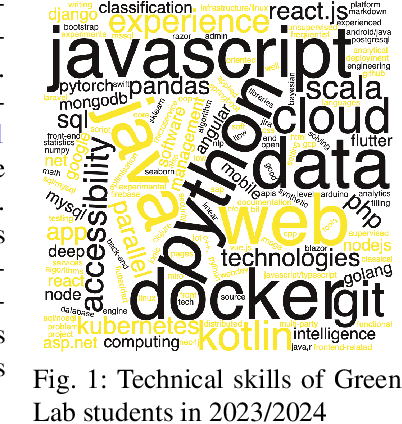
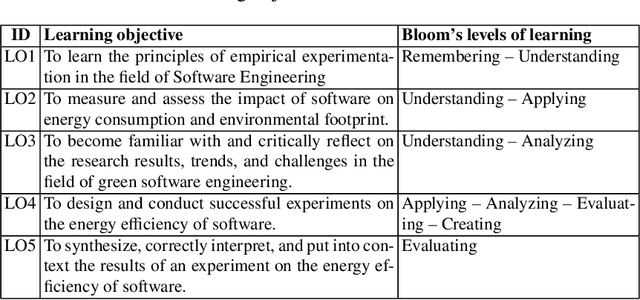


Abstract:In this chapter we share our experience in running ten editions of the Green Lab course at the Vrije Universiteit Amsterdam, the Netherlands. The course is given in the Software Engineering and Green IT track of the Computer Science Master program of the VU. The course takes place every year over a 2-month period and teaches Computer Science students the fundamentals of Empirical Software Engineering in the context of energy-efficient software. The peculiarity of the course is its research orientation: at the beginning of the course the instructor presents a catalog of scientifically relevant goals, and each team of students signs up for one of them and works together for 2 months on their own experiment for achieving the goal. Each team goes over the classic steps of an empirical study, starting from a precise formulation of the goal and research questions to context definition, selection of experimental subjects and objects, definition of experimental variables, experiment execution, data analysis, and reporting. Over the years, the course became well-known within the Software Engineering community since it led to several scientific studies that have been published at various scientific conferences and journals. Also, students execute their experiments using \textit{open-source tools}, which are developed and maintained by researchers and other students within the program, thus creating a virtuous community of learners where students exchange ideas, help each other, and learn how to collaboratively contribute to open-source projects in a safe environment.
A Controlled Experiment on the Energy Efficiency of the Source Code Generated by Code Llama
May 06, 2024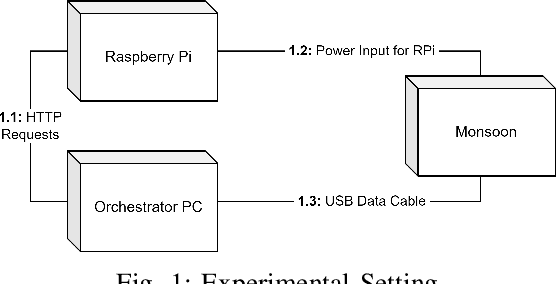
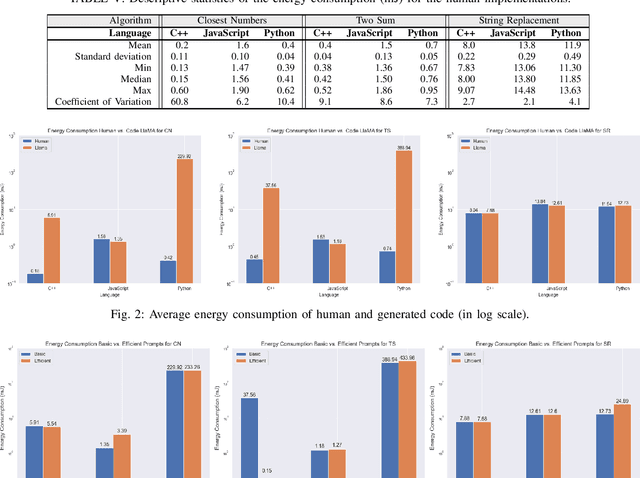


Abstract:Context. Nowadays, 83% of software developers use Large Language Models (LLMs) to generate code. LLMs recently became essential to increase the productivity of software developers and decrease the time and cost of software development. Developers ranging from novices to experts use LLM tools not only to detect and patch bugs, but also to integrate generated code into their software. However, as of today there is no objective assessment of the energy efficiency of the source code generated by LLM tools. Released in August 2023, Code Llama is one of the most recent LLM tools. Goal. In this paper, we present an empirical study that assesses the energy efficiency of Code Llama with respect to human-written source code. Method. We design an experiment involving three human-written benchmarks implemented in C++, JavaScript, and Python. We ask Code Llama to generate the code of the benchmarks using different prompts and temperatures. Therefore, we execute both implementations and profile their energy efficiency. Results. Our study shows that the energy efficiency of code generated by Code Llama is heavily-dependent on the chosen programming language and the specific code problem at hand. Also, human implementations tend to be more energy efficient overall, with generated JavaScript code outperforming its human counterpart. Moreover, explicitly asking Code Llama to generate energy-efficient code results in an equal or worse energy efficiency, as well as using different temperatures seems not to affect the energy efficiency of generated code. Conclusions. According to our results, code generated using Code Llama does not guarantee energy efficiency, even when prompted to do so. Therefore, software developers should evaluate the energy efficiency of generated code before integrating it into the software system under development.
Industry Best Practices in Robotics Software Engineering
Dec 09, 2022Abstract:Robotics software is pushing the limits of software engineering practice. The 3rd International Workshop on Robotics Software Engineering held a panel on "the best practices for robotic software engineering". This article shares the key takeaways that emerged from the discussion among the panelists and the workshop, ranging from architecting practices at the NASA/Caltech Jet Propulsion Laboratory, model-driven development at Bosch, development and testing of autonomous driving systems at Waymo, and testing of robotics software at XITASO. Researchers and practitioners can build on the contents of this paper to gain a fresh perspective on their activities and focus on the most pressing practices and challenges in developing robotics software today.
Mining Energy-Related Practices in Robotics Software
Mar 25, 2021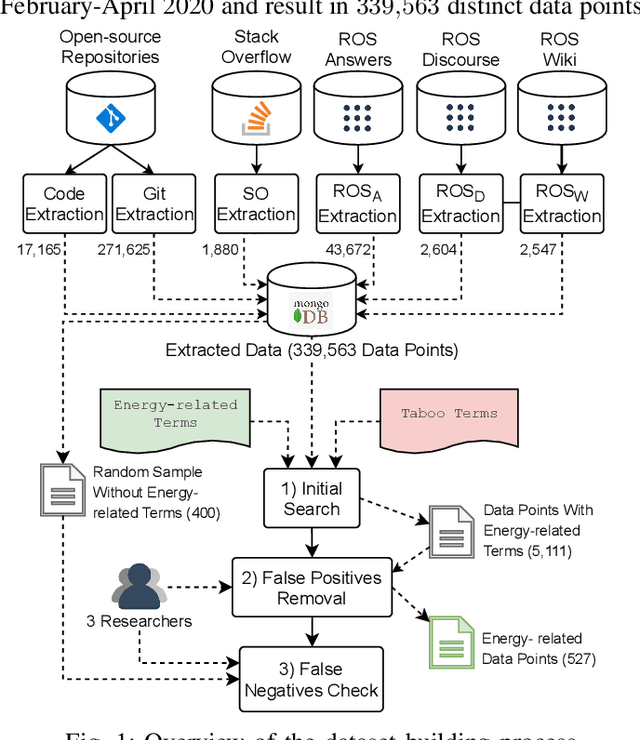
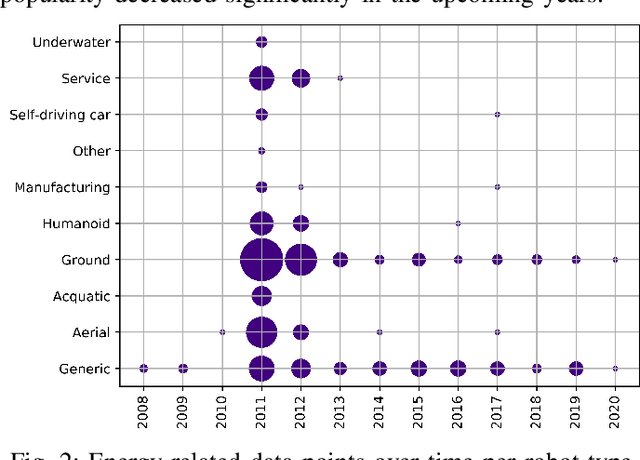
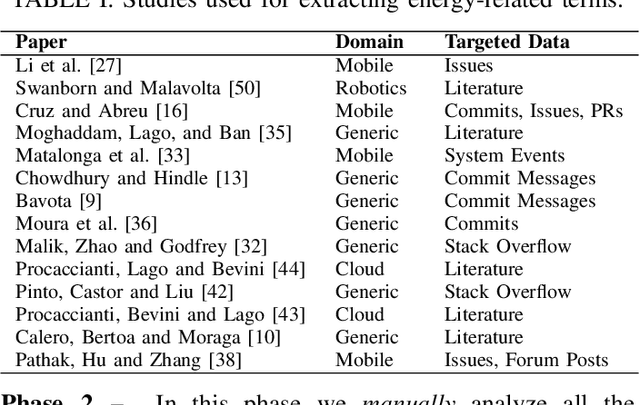
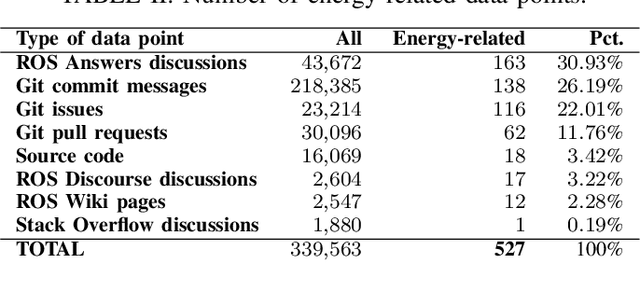
Abstract:Robots are becoming more and more commonplace in many industry settings. This successful adoption can be partly attributed to (1) their increasingly affordable cost and (2) the possibility of developing intelligent, software-driven robots. Unfortunately, robotics software consumes significant amounts of energy. Moreover, robots are often battery-driven, meaning that even a small energy improvement can help reduce its energy footprint and increase its autonomy and user experience. In this paper, we study the Robot Operating System (ROS) ecosystem, the de-facto standard for developing and prototyping robotics software. We analyze 527 energy-related data points (including commits, pull-requests, and issues on ROS-related repositories, ROS-related questions on StackOverflow, ROS Discourse, ROS Answers, and the official ROS Wiki). Our results include a quantification of the interest of roboticists on software energy efficiency, 10 recurrent causes, and 14 solutions of energy-related issues, and their implied trade-offs with respect to other quality attributes. Those contributions support roboticists and researchers towards having energy-efficient software in future robotics projects.
* 11 pages
 Add to Chrome
Add to Chrome Add to Firefox
Add to Firefox Add to Edge
Add to Edge